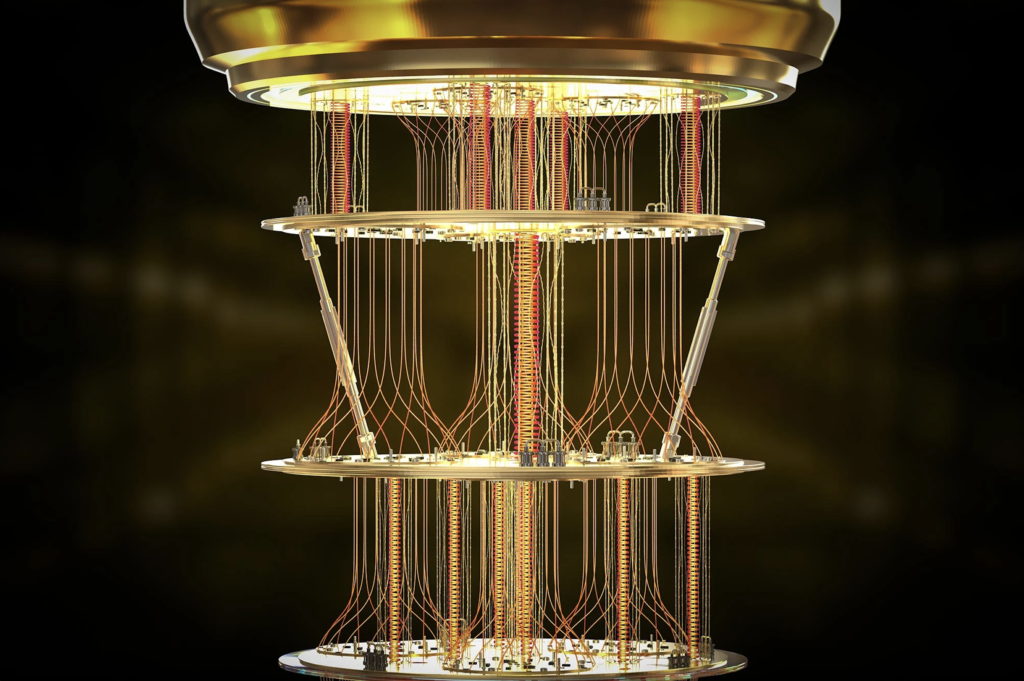
The Power of Quantum Computing
Quantum computers leverage the principles of quantum mechanics, including superposition and entanglement, to perform calculations far beyond the reach of traditional computers. Unlike classical bits, which represent information as either 0 or 1, quantum bits (qubits) can exist in multiple states simultaneously. This unique property allows quantum computers to solve complex optimization problems, simulate molecular structures, and analyze massive datasets with unparalleled efficiency.
How AI Benefits from Quantum Computing
AI relies heavily on pattern recognition, data processing, and machine learning algorithms, all of which require substantial computational power. Traditional computers, even the most advanced supercomputers, struggle with the demands of deep learning and neural networks as data grows exponentially. Quantum computing could enhance AI in several ways:
- Faster Machine Learning – Quantum algorithms such as quantum support vector machines and quantum neural networks could significantly speed up AI training and inference processes, reducing time from weeks to minutes.
- Improved Optimisation – Many AI applications require solving complex optimization problems, from logistics to financial modelling. Quantum algorithms like the Quantum Approximate Optimisation Algorithm (QAOA) can enhance decision-making processes by finding optimal solutions faster.
- Enhanced Natural Language Processing (NLP) – AI’s ability to understand human language is still imperfect. Quantum-enhanced NLP could lead to more accurate, real-time translation, sentiment analysis, and contextual understanding.
- Advancing Drug Discovery and Healthcare – AI-powered drug discovery, when integrated with quantum simulations, could lead to the rapid identification of new drugs and treatments for diseases such as cancer and Alzheimer’s.
Potential Risks and Ethical Considerations
With great power comes great responsibility, and the convergence of AI and quantum computing is no exception. Several risks and ethical concerns need to be addressed:
- Cybersecurity Threats – Quantum computing has the potential to break existing encryption methods, posing serious risks to global cybersecurity. AI-driven quantum security solutions must be developed to counteract this threat.
- Job Displacement – As AI and quantum computing automate more tasks, job markets may shift, requiring workforce adaptation through reskilling and upskilling initiatives.
- Bias and Decision-Making – AI is already susceptible to biases in data. Quantum computing could accelerate AI decision-making but might also amplify biases if not properly managed.
- Existential Risks – Some experts warn that AI, combined with quantum computing, could lead to superintelligent systems beyond human control, raising concerns about ethical AI development.
A Future Defined by AI and Quantum Synergy
The integration of AI and quantum computing is not a question of if, but when. Governments, tech giants, and research institutions worldwide are investing heavily in this convergence. Breakthroughs in quantum AI could solve humanity’s most pressing challenges, from climate change modeling to economic forecasting and space exploration.
While the road ahead is filled with uncertainties, one thing remains clear: the merging of AI and quantum computing will redefine the boundaries of what is possible. If harnessed responsibly, this technological revolution could lead to a future of unimaginable progress, unlocking new frontiers in human potential and scientific discovery.
